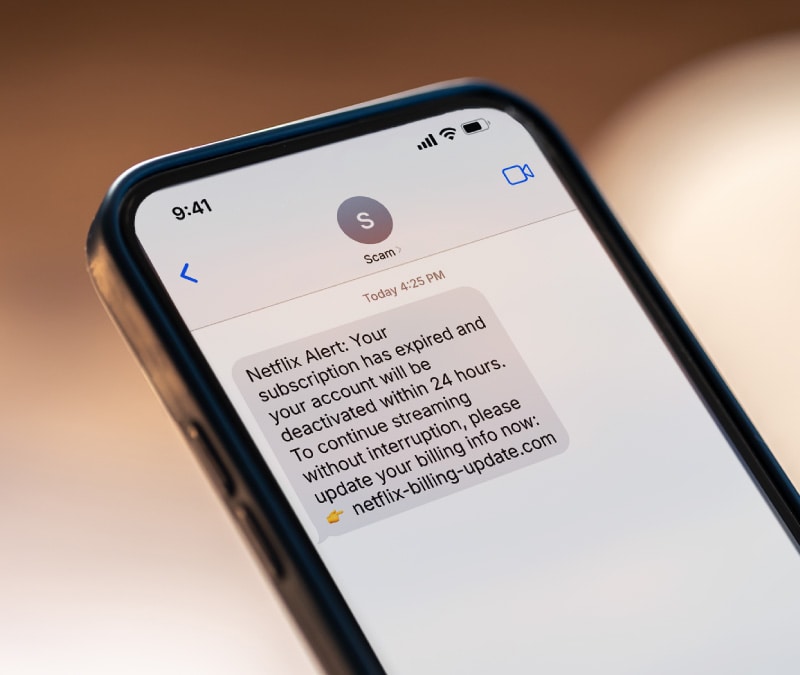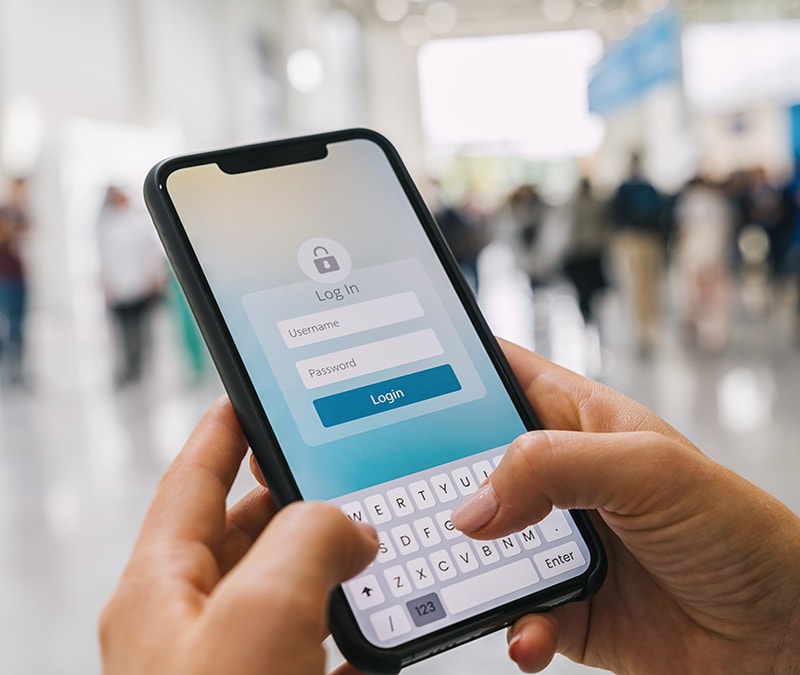Stay Ahead of Scams: Your 2025 Cybersecurity Tips
October is Cybersecurity Awareness Month, a time to focus on protecting your digital life. Cyberthreats are constantly evolving, and AI now makes it easier than ever for cybercriminals to scam you. The good news is that you can take simple but powerful steps to defend yourself against these advanced scams.

Worried about getting scammed? Here are four simple steps you can take to secure your accounts, protect your data, and stay ahead of online fraudsters.
1. Set up multi-factor authentication (MFA)
One of the most effective shields against an account takeover is multi-factor authentication. This simple security layer makes it significantly harder for scammers to access your online accounts, even if they manage to steal your password. Think of it as a digital deadbolt on your front door.
What is MFA? It's a security process that requires you to provide two or more verification factors to gain access to an account. The most common example is entering your password and then inputting a one-time code sent to your phone or email.
Other verification factors include:
- A security question only you know the answer to.
- Biometrics like your fingerprint or a facial scan.
- A temporary code from an authenticator app.
You can usually find the option to enable MFA in the security settings of your online accounts. Taking a few minutes to set it up for your most critical accounts—like banking, email, and social media—provides a massive boost to your online safety.
2. Strengthen your passwords
A weak password can be an open invitation if it’s easily remembered. Creating passwords that are random enough can help make it nearly impossible for scammers to crack. Strong password habits are fundamental to protecting your information from falling into the wrong hands.
The best way to create passwords is to use a passkey when offered or use a password generator to generate one for you.
A strong password is:
- Long: Aim for at least 15 characters.
- Passphrases: Use 4–6 unrelated words with a simple separator (e.g., tea-harbor-crisp-violin).
- Complexity: Passwords no longer require special characters and numbers. Adding these extra complexities will make the password harder to guess, but it’s more important for the password to be long.
- Unique: Never reuse passwords across different accounts.
Remembering dozens of unique, complex passwords is a challenge. That's where a password manager becomes essential. These tools securely store all your passwords in an encrypted vault, generate strong new ones on demand, and can automatically fill them in for you.
3. Keep your software updated
Scammers and hackers often exploit known security holes in outdated software to access your devices. When developers release software updates, they frequently include patches for these vulnerabilities. By delaying updates, you can leave a window of opportunity open for cybercriminals.
Make it a habit to install updates for your operating system and applications as soon as they become available. To make this even easier, enable automatic updates on your devices. This ensures you always have the latest security fixes without having to think about it.
Regular updates not only protect you from scams and malware. They also often include performance improvements and new features, helping your devices run more smoothly. You can learn more about how to keep your computer and data secure.
4. Learn to spot and report phishing scams
Phishing remains one of the most common tools in a scammer's arsenal. These fraudulent messages—sent via email, text, or social media—are designed to trick you into clicking a malicious link, downloading an infected attachment, or revealing personal information. AI-powered tools now help criminals craft even more convincing and personalized phishing messages.
The key to defending against phishing is to recognize the warning signs and think before you click. Be wary of messages that:
- Create a sense of urgency or fear.
- Contain spelling and grammar mistakes.
- Make offers that seem too good to be true.
- Ask you to click a link or provide sensitive data.
- Come from an unfamiliar sender or have a slightly "off" email address.
If you receive a suspicious message, don't interact with it. Report it through your email or messaging platform, delete it, and block the sender. For more tips, check out our guide on how to protect against phishing attacks.
5. Stay ahead of Scams and Online threats with compherhensive protection
Scammers are always coming up with new ways to trick you—whether it’s fake emails, sketchy texts, or phishing links trying to grab your personal info. It can feel overwhelming to keep up, but that’s where having an all-in-one, comprehensive online security solution can make a difference.
With powerful tools that detect and block email or SMS scams before they reach you, Norton 360 helps you avoid online scammers. Its advanced security uses smart technology to spot threats you might miss, giving you peace of mind while you browse, shop, or bank online.
Plus, with features like Secure VPN, Dark Web Monitoring, Password Manager and real-time threat protection, Norton 360 helps keep your personal info safe, so you can focus on living your digital life worry free.
Your Next Steps for a Safer Digital Life?
Cyberthreats are evolving. Thankfully, the digital protection tools we use are evolving, too. By implementing the simple practices above and having the right protection for your devices you can significantly reduce your risk of falling victim to a scam.
This Cybersecurity Awareness Month, take the time to secure your digital life with the right tools. Your future self will thank you.
Editorial note: Our articles provide educational information for you. Our offerings may not cover or protect against every type of crime, fraud, or threat we write about. Our goal is to increase awareness about Cyber Safety. Please review complete Terms during enrollment or setup. Remember that no one can prevent all identity theft or cybercrime, and that LifeLock does not monitor all transactions at all businesses. The Norton and LifeLock brands are part of Gen Digital Inc.







Want more?
Follow us for all the latest news, tips, and updates.